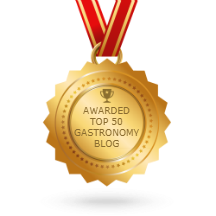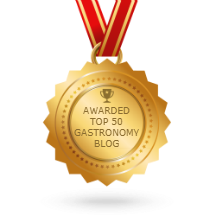* * * * *
I am very, very sad to report that Tom Sims, my old Navy buddy and a key figure in Sevilla: Arrival in Spain, Soldiers on a Train, the second chapter of my book Sunset in a Glass: Adventures of a Food and Wine Warrior in Spain Volume 1 Enhanced Photography Edition, Foreword by José Andrés, passed away this morning in a nursing home in Colorado.
His sister Charlotte Olein, a former Miss Minnesota, with whom I have been in contact about Tom for the past year, let me know this morning.
On the Acknowledgements pages I wrote this:
"Without the eccentricity of Tom Sims, my Navy buddy, I would never have had, albeit accidentally, the unique privilege of entering Sevilla for the very first time via el Arco de la Macarena, as was traditional for the kings of Spain on their first visits."
This is from Chapter Two: Sevilla: Arrival in Spain, Soldiers on a Train (Copyright by Gerry Dawes 2021.)
"During my first months in the Navy at Rota, I met Tom Sims, a tall, shy, sardonic, totally ec- centric French linguist, whose father was a prominent geologist and whose sister Charlotte was crowned Miss Minnesota in 1967. One of the quirkiest of many quirky people I have known in my life, Sims became my friend and, eventually, my housemate in an off-base apartment.
Sims arrived in Rota several months before I did and had been to Sevilla once. How Sims managed to get there and back, I still wonder, since his skills as a navigator, or anything else involving the use of logic applied to everyday problems, seemed non-existent. Sims, whose whole life revolved around reading good literature while listening to classical music, is a man to whom I would never loan even a screwdriver without a serious interrogation, nor would I turn him loose in any kitchen unless I wanted it to become a toxic waste site. His idea of cooking in those days consisted of dumping a box of Kraft Macaroni & Cheese—bought from the Rota Navy Exchange—into a pan of water, turning the fire on under it and reading until he smelled it burning. Sims also seemed to revel in a peculiar habit that made him, say, order steak in some of the best seafood restaurants in Spain such as those in Sanlúcar de Barrameda, and then choose fish in landlocked Ecija, a Córdoba province town which gets so hot it is known as la sartén de España, the frying pan of Spain.
In early spring of 1968, Sims and I took the train from El Puerto de Santa María to Sevilla. When we arrived at what even a novice like me knew had to be the main train station in Sevilla, then the Estación de San Bernardo, Sims claimed that there was another station where we were supposed to get off. After a 15-minute stop, the train began to move. I kept questioning Sims about this “other” station, since I was convinced that we were on our way to Madrid. As the train was rambling out of the suburbs of Sevilla, it slowed down for a track-switching maneuver and I insisted that we jump off before it picked up speed again.
We got off the train while it was moving and ended up in San Jerónimo, then a suburban village near Sevilla’s San Fernando cemetery, where later I would learn that Joselito and Belmonte, the two great hero matadors of Sevilla, were interred. It was market day in San Jerónimo, so we strolled along the street listening to the foreign sounds of peddlers hawking the cheap produce of a working-class barrio. When we asked using sign language how we could get to Sevilla, a woman at a vegetable stand pointed to a bus stop across the street. The bus was just arriving and we rode four kilometers to Sevilla, where we got off at a stop across the street from one of the old Moorish gates to the city.
The gate was the Arco de la Macarena, the ancient archway through which one of the most iconic Virgin figures of Andalucía, La Virgen de la Macarena, a jewel-bedecked, richly robed Madonna statue of legendary beauty, is carried out each Holy Thursday to the hosannas of thousands of Sevillanos. The Macarena gate is flanked by the ruins of Sevilla’s old Roman walls and is one of the city’s most revered spots, but it was not a place directly linked to any main roads, so it was next to impossible for a foreigner to enter the city this way. I have long thought, given this auspicious entrance into Sevilla, that my fate was somehow inextricably intertwined with this marvelous Andalucian city from that first moment. My future wife and I eventually lived in Sevilla for nearly four years; the best man at our wedding was a Sevillano, and it was Sevilla that, 25 years later— through a pivotal rekindled friendship and the discovery of a prodigiously talented young bullfighter/media star, Francisco Rivera Ordoñez—would draw me ever more deeply back into Spain.
On that wondrous spring day in 1968, Sims and I wandered through the back streets for hours, emerging from Sevilla’s narrow urban canyons on calle Francos to find the La Giralda tower soaring above us. Once the minaret of the main mosque when the Moors ruled Sevilla seven centuries earlier, La Giralda was later capped with a Renaissance structure and became the bell tower of the Cathedral and Sevilla’s symbol, its Eiffel Tower. The statue of Faith, called El Giraldillo, crowning the top of the structure, has a metal protrusion that allows it to swivel in the wind so that it acts as a weathervane. The shield-like protrusion resembles a mu- leta, the small red cloth that a bullfighter uses during la faena, the main act of a corrida— there is even a pass called the giraldilla.
Sims and I had finally arrived at the center of the city, but our meanderings were worth it. From our impromptu entrance through the Macarena arch that is sacred to Sevillanos and our serendipitous exploration of the labyrinthine streets of the working-class quarters of Sevilla with their strange sights, smells, and sounds, I got a taste of the city’s true alma, its soul, one that I have never lost. In subsequent months, now enchanted with this beautiful and exotic city, I returned again and again."
I had hoped to visit Tom Sims in Colorado, where another old Pamplona buddy, Brooks Read, lived and where two of my daughters lived, Elena in Colorado Springs and Erica in Dolores. Brooks lived in Boulder, Tom Sims in outside of Denver, Brooks died suddenly a couple of weeks ago, the day after calling me and praising Sunset in a Glass profusely. Charlotte Sims Olein told me that Tom had been able to see a copy of the book before he passed. I sincerely hope it brought both of them fond memories of their younger days and they are both resting in peace and reveling in those memories.
QDEP Tom Sims and Mark (Brooks) Read. At least I was able to leave you with some great memories.
* * * * *
Comments are welcome and encouraged.
Text and photographs
copyright by Gerry Dawes©2021. Using photographs without crediting Gerry Dawes©2021 on
Facebook. Publication without my written permission is not authorized.
* * * * *
Shall deeds of Caesar or Napoleon ring
More true than Don Quixote's vapouring?
Hath winged Pegasus more nobly trod
Than Rocinante stumbling up to God?
More true than Don Quixote's vapouring?
Hath winged Pegasus more nobly trod
Than Rocinante stumbling up to God?
Poem
by Archer M. Huntington inscribed under the Don Quixote on his horse
Rocinante bas-relief sculpture by his wife, Anna Vaughn Hyatt
Huntington,
in the courtyard of the Hispanic
Society of America’s incredible museum at 613 W. 155th Street, New York
City.
_______________________________________________________________________________________________

In 2019, again ranked in the Top 50
Gastronomy Blogs and Websites for Gastronomists & Gastronomes in
2019 by Feedspot. (Last Updated Oct 23, 2019)
"The Best Gastronomy blogs selected from thousands of Food blogs, Culture blogs and Food Science blogs in our index using search and social metrics. We’ve carefully selected these websites because they are actively working to educate, inspire, and empower their readers with frequent updates and high-quality information."
36. Gerry Dawes's Spain: An Insider's Guide to Spanish Food, Wine, Culture and Travel
About Gerry Dawes
"The Best Gastronomy blogs selected from thousands of Food blogs, Culture blogs and Food Science blogs in our index using search and social metrics. We’ve carefully selected these websites because they are actively working to educate, inspire, and empower their readers with frequent updates and high-quality information."
36. Gerry Dawes's Spain: An Insider's Guide to Spanish Food, Wine, Culture and Travel
About Gerry Dawes
My good friend Gerry Dawes, the unbridled Spanish food and wine
enthusiast cum expert whose writing, photography, and countless
crisscrossings of the peninsula have done the most to introduce
Americans—and especially American food professionals—to my country's
culinary life." -- Chef-restaurateur-humanitarian José Andrés, Nobel
Peace Prize Nominee and Oscar Presenter 2019
Gerry Dawes is the Producer and Program Host of Gerry Dawes & Friends, a weekly radio progam on Pawling Public Radio in Pawling, New York (streaming live and archived at www.pawlingpublicradio.org and at www.beatofthevalley.com.)
Dawes
was awarded Spain's prestigious Premio Nacional de Gastronomía
(National Gastronomy Award) in 2003. He writes and speaks frequently on
Spanish wine and gastronomy and leads gastronomy, wine and cultural
tours to Spain. He was a finalist for the 2001 James Beard Foundation's
Journalism Award for Best Magazine Writing on Wine, won The Cava
Institute's First Prize for Journalism for his article on cava in 2004,
was awarded the CineGourLand “Cinéfilos y Gourmets” (Cinephiles
& Gourmets) prize in 2009 in Getxo (Vizcaya) and received the
2009 Association of Food Journalists Second Prize for Best Food Feature
in a Magazine for his Food Arts article, a retrospective piece about
Catalan star chef, Ferran Adrià.
In December, 2009, Dawes was awarded the Food Arts Silver Spoon Award in a profile written by José Andrés.
".
. .That we were the first to introduce American readers to Ferran Adrià
in 1997 and have ever since continued to bring you a blow-by-blow
narrative of Spain's riveting ferment is chiefly due to our Spanish
correspondent, Gerry "Mr. Spain" Dawes, the messianic wine and food
journalist raised in Southern Illinois and possessor of a
self-accumulated doctorate in the Spanish table. Gerry once again
brings us up to the very minute. . ." - - Michael & Ariane
Batterberry, Editor-in-Chief/Publisher and Founding Editor/Publisher,
Food Arts, October 2009.
Pilot for a reality television series
on wine, gastronomy, culture and travel in Spain.
Experience
Spain With Gerry Dawes: Customized Culinary, Wine & Cultural
Trips to Spain & Travel Consulting on Spain
Gerry Dawes can be reached at gerrydawes@aol.com; Alternate e-mail (use only if your e-mail to AOL is rejected): gerrydawes@gmail.com
Gerry Dawes can be reached at gerrydawes@aol.com; Alternate e-mail (use only if your e-mail to AOL is rejected): gerrydawes@gmail.com

















No comments:
Post a Comment